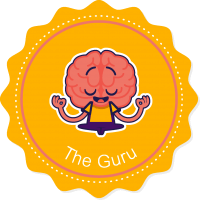Sensorial learning is a teaching approach that stimulates the child’s five senses; taste, touch, smell, sight, and hearing. This allows children to use their senses to explore and understand the world around them. It includes activities that help them study objects, colors, textures, tastes, numbers, and situations.
In Montessori Academy, we believe that every child needs an education that fosters a life-long love for learning. We must introduce them to a teaching technique that is both fun and beneficial. Sensorial development will help them build necessary skills that include cognition and logic.
Benefits of Sensorial Learning
Develops nerve connections – a newborn baby’s brain has 100 billion neurons. As these neurons grow, the synapses or connections between brain cells increase accordingly. However, synapses may also decrease as the brain eliminates links that are rarely or never used.
Sensorial learning builds nerve connections in the brain’s pathway by promoting activities that stimulate their senses. This will heighten our little one’s ability to accomplish more intricate tasks later on.
Enhances memory – studies show that using only the auditory approach of teaching makes the brain easily forget a piece of information. One of the benefits of sensorial learning is that it enhances the child’s ability to retain lessons by allowing them to learn through “experience.” Your baby’s motor memory will be improved by practice.
Promotes critical thinking and problem-solving – Montessori sensorial learning introduces your baby to different enjoyable activities that will make them wonder. These activities are designed to give them a healthy amount of stress that arouses their problem-solving abilities.
Helps in calming your child – do you worry that your child may be crying too much? Maybe he tends to be anxious or frustrated? Crying is a healthy brain development that all our children go through. Sensorial activities are a fun way that helps in controlling your child’s agitation and restlessness. It can ease their discomfort and calm their anxiety. These activities aimed at introducing them to new learnings without over stimulating them.
Reinforces childhood development –According to a study conducted by scientists, language skills are developed most easily during the first ten years of your child’s life. It is also during those years that they acquire cognitive growth and motor skills. So please take advantage of your child’s formative years by providing them the best way to learn. Sensorial learning exposes your babies repeatedly to activities and experiences that reinforce their brain development.
Supports social skills – sensorial development allows your child to enjoy working together with others and establish strong social interactions. It gives them a sense of belongingness, develops their compassion, and equips them with better communication skills. Their verbal and non-verbal interactions will provide them with an excellent foundation to become better people as they grow older.
In this digital age, more and more young ones are exposed to computer games that lack the essential use of all senses. It is our responsibility to act, as parents and educators, and to provide them with a solid foreground for schooling. It is vital right now to instill physical and mental engagement in their education. Montessori sensorial learning is a type of training that your kids will love. It is incredibly beneficial for them. Your little loved ones rely on you to get the proper learning that they will carry through their life. The sooner you start sensorial learning, the better your children will reap its benefits!

